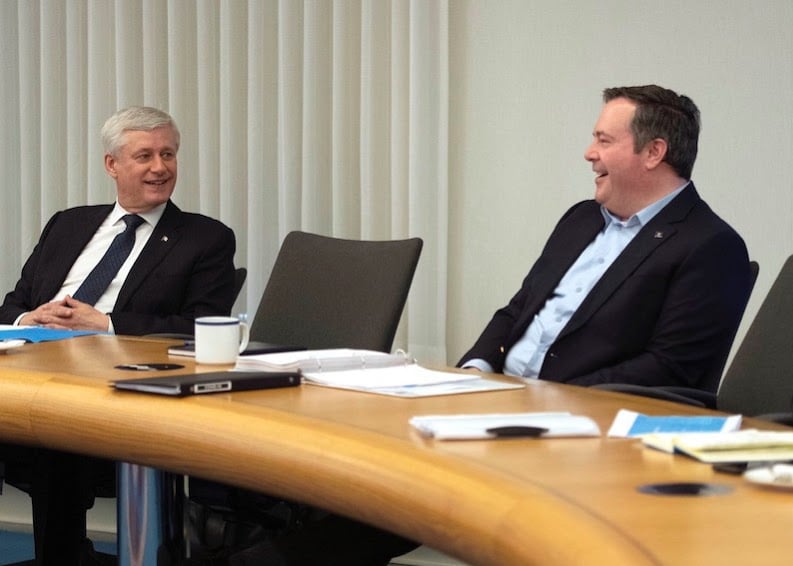The world is experiencing an alarming resurgence of right-wing authoritarianism. And Canada is not immune.
In some cases, governments led by authoritarians have asserted power in countries with little history of democracy. That’s the case with Vladimir Putin’s government in Russia.
In other cases, the new breed of authoritarians has won power through democratic means in countries with more robust democratic traditions.
This is the case with the Orban government in Hungary, the Erdogan government in Turkey, the Modi government in India, the Bolsonaro government in Brazil and, many would argue, the Trump government in the United States.
These governments have tended to win election by using the politics of anger, fear and division. Once in power, they have implemented policies and used tactics that academics, experts and reasonable observers have described as authoritarian.
They’ve promoted aggressive nationalism, targeted “out” groups, sanctioned racism, attacked democratic norms, clamped down on dissent and promoted hostility towards the media and civil society groups, including independent trade unions — all traits associated with authoritarianism.
Knowing the horrors that can be unleashed by authoritarian leaders and governments, it is imperative that citizens of the world’s democracies take note of these troubling trends.
It’s also important for Canadians to understand that we are not immune. We must call out authoritarian tendencies when we see them in our own politicians and governments.
Here in Alberta, the Conservative Party of Canada and the United Conservative Party, while not out-right authoritarians, have cultivated close ties with some of the authoritarian governments listed above and have adopted some of their tactics, policies and strategies.
The United Conservative Party government has also done things that hint at authoritarian tendencies — targeting and vilifying environmentalists; firing Alberta’s elections watchdog while he was in the midst of investigating the premier; refusing to fire bigoted candidates and staff members; criminalizing dissent and protest; obfuscating the media; mobilizing state resources to harass citizens on social media; attacking unions while sheltering wealthy supporters; making efforts to stack the courts; seizing workers’ pensions without their consent; and planning to use partisan referendums to discredit and circumvent traditional forms of representative democracy. The government has attempted to cast itself as the voice of “real Albertans,” while suggesting that those who disagree with them are somehow less Albertan.
It is perhaps no surprise that former Canadian prime minister Stephen Harper seems to be playing a role. He’s now the leader of the so-called International Democratic Union, a club of global conservative parties that includes many of the world’s new authoritarian strongmen.
It is clear that Alberta Premier Jason Kenney has been looking to his former boss and the IDU for inspiration.
This should raise red flags for Canadians, especially Albertans.
When authoritarianism takes root, civil liberties disappear and intolerance, discrimination and harassment grow. In a great democracy like Canada, we simply cannot allow this to happen. But stopping it requires vigilance and a willingness to push back against all examples of authoritarianism when they emerge, so they are not allowed to flourish.
The time has come for such vigilance in regard to the United Conservative Party and the Conservative Party of Canada.
This does not mean that people who support or who have voted for the parties are authoritarians. On the contrary, it simply means that certain leaders and party functionaries are dabbling with or have been influenced by authoritarian tactics and strategies. They have convinced themselves that this is the best way for them to win elections.
But it doesn’t have to be this way.
In fact, the Canadian experience clearly shows that conservative ideals and policies are in no way incompatible with healthy democracies. Great Canadian conservative leaders like John Diefenbaker, Joe Clark, Brian Mulroney, Bill Davis and Peter Lougheed are evidence of this. But too many leaders, activists and strategists in the current CPC and UCP have been tempted and tainted by the questionable tactics, strategies and policies used by their counterparts in other countries that have veered towards authoritarianism.
As the saying goes: the first step towards recovery is to admit that we have a problem.
With that in mind, it’s time for Canadians of all political stripes to say the following: “When it comes to the authoritarian tendencies on display within the CPC and the UCP, we have a problem.”
Now that we’ve said it, it’s time to address the problem — honestly, with resolve and with a spirit of good will and active citizenship.
The future of our democracy depends on it. ![]()
Read more: Politics

















Tyee Commenting Guidelines
Comments that violate guidelines risk being deleted, and violations may result in a temporary or permanent user ban. Maintain the spirit of good conversation to stay in the discussion.
*Please note The Tyee is not a forum for spreading misinformation about COVID-19, denying its existence or minimizing its risk to public health.
Do:
Do not: